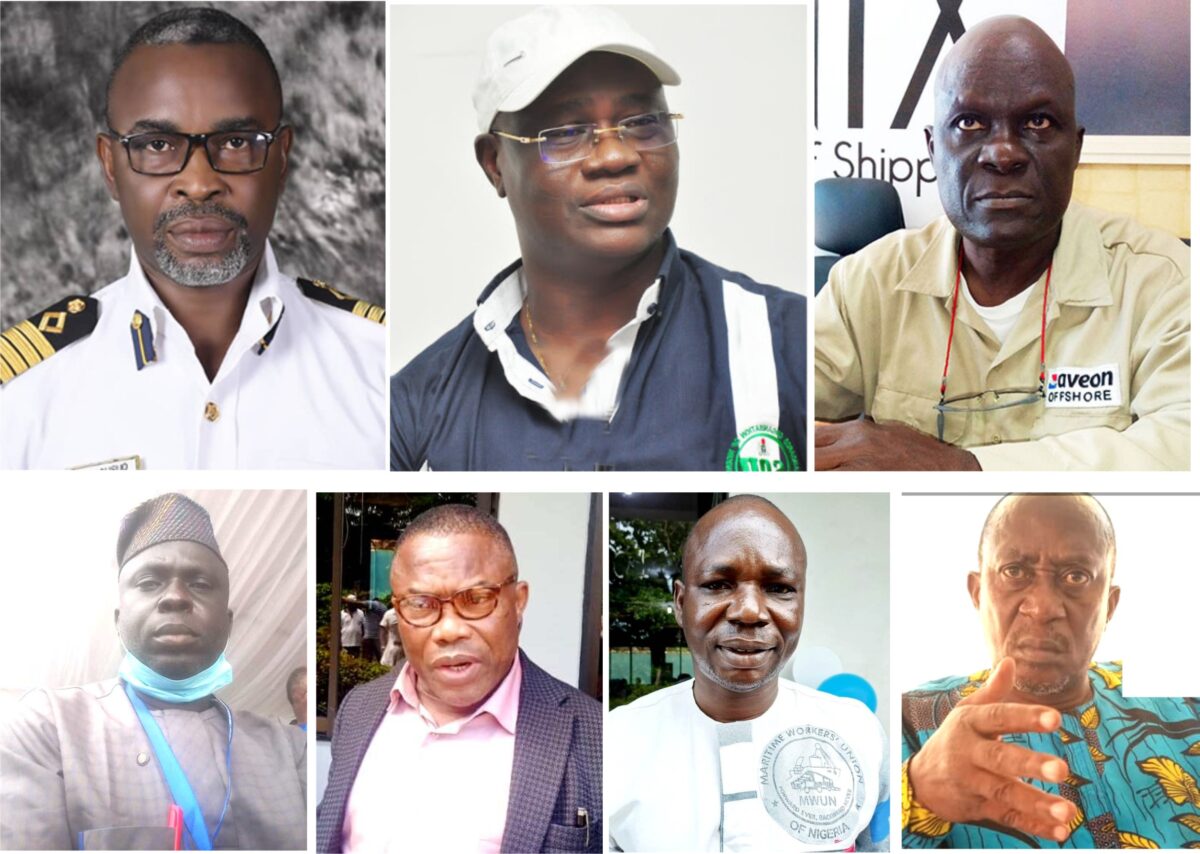
Engineer Bob Yousuo (National President, NMOWTSSA)
I will say the seafarers of today are better off than seafarers of the old, because of technology and all that. I would also say the Seafarers of those days are also better off, because the economy generally was good. But now, the economy is not good. It does not only apply to seafarers alone, the economy generally is bad. Even if they are well paid or not, seafarers still feel the brunt of the bad economy.
Comrade Adewale Adeyanju (President-General, MWUN)
I would say seafaring of today is 90 percent better. This is because seafaring in Nigeria has contributed to the growth of this country and there’s no way I’m going to say we are backward. We are moving forward despite the challenges coming in left and right. I’ll only call on the government to look into these challenges and see how we can solve them. We are making progress and there is no doubt about that.
Captain Tajudeen Alao (National President, Master Mariners)
Today we have the MLC convention and STCW that is domesticated and a unit enforcing it. We have been able to get collective agreement between the employer, seafarers and the government. So, we are better off today than before. The only aspect is the idea of continuity of employment. But the fact that there is contribution, deduction for pension and tax, Seafarers have the benefits they will get at the end of the career, unlike before when they are retired and there is no pay. Now, there is no hiding place for employers of labour and a seafarer cannot be stranded anymore like those days, so we are better off today. The international community has given us attention by declaring Seafarers day, World Maritime day etc, that means we are in the front burner in international shipping.
Captain Adetayo Saliu (Chairman, Merchant Navy Shipping Zonal Council)
It is better today, because technology has made the situation a very beautiful one unlike where we started. In yester years, most of our equipment are manual. We do a lot of calculations and use the radar to fix positions. But today we have GPS and other electronic charts. There has been promulgation of laws that now enhance welfare for seafarers. I think it is a lot better.
But we have better professionalism than now. We were committed and very serious unlike now when everything is just automatic without much look outs. The accidents those days were not like how it is now. I think it is better today because all together, the package is good.
Mr. Stephen Okpara (Cabotage Officer, NIMASA)
The development is supposed to be gradua. When you want to make appraisal, you don’t make appraisal from what it used to be, what it is today and what is being expected. In the past, it was almost like nothing, but now, mass improvement has been made. The NSDP programme by NIMASA has trained 2000 Cadets and has sent about 500 of them to different parts of the world for sea time training. It is a gradual process and we expect that over time. Nigerian seafarers will take over maritime activities in Nigeria.
Rotimi Babatunde (Seafarer)
I have been in seafaring for the past 10 years. I would say this period is better, because the system was very poor compared to it now when I started. Then we were not given anything like medical or hospital welfare services, but now we have healthcare benefits.
Captain Thomas Kemewerigha
The truth of the matter is that in a developing world, all issues of the past have been modified for good. No area is static in all profession but seafaring in the Nigerian context is static. It is even getting worse in the sense that in the past, seafarers were benefiting so many things internationally. The developed countries are improving and coming out with new policies and the after-effect is falling on Nigerian seafarers. The Nigerian certificate is not recognised in flagged vessels of other countries in Nigeria. Our seafarers are not employed. We are lacking in so many areas, such as bilateral agreements, training vessels and the likes. To me, the system is not getting better, but worse.















